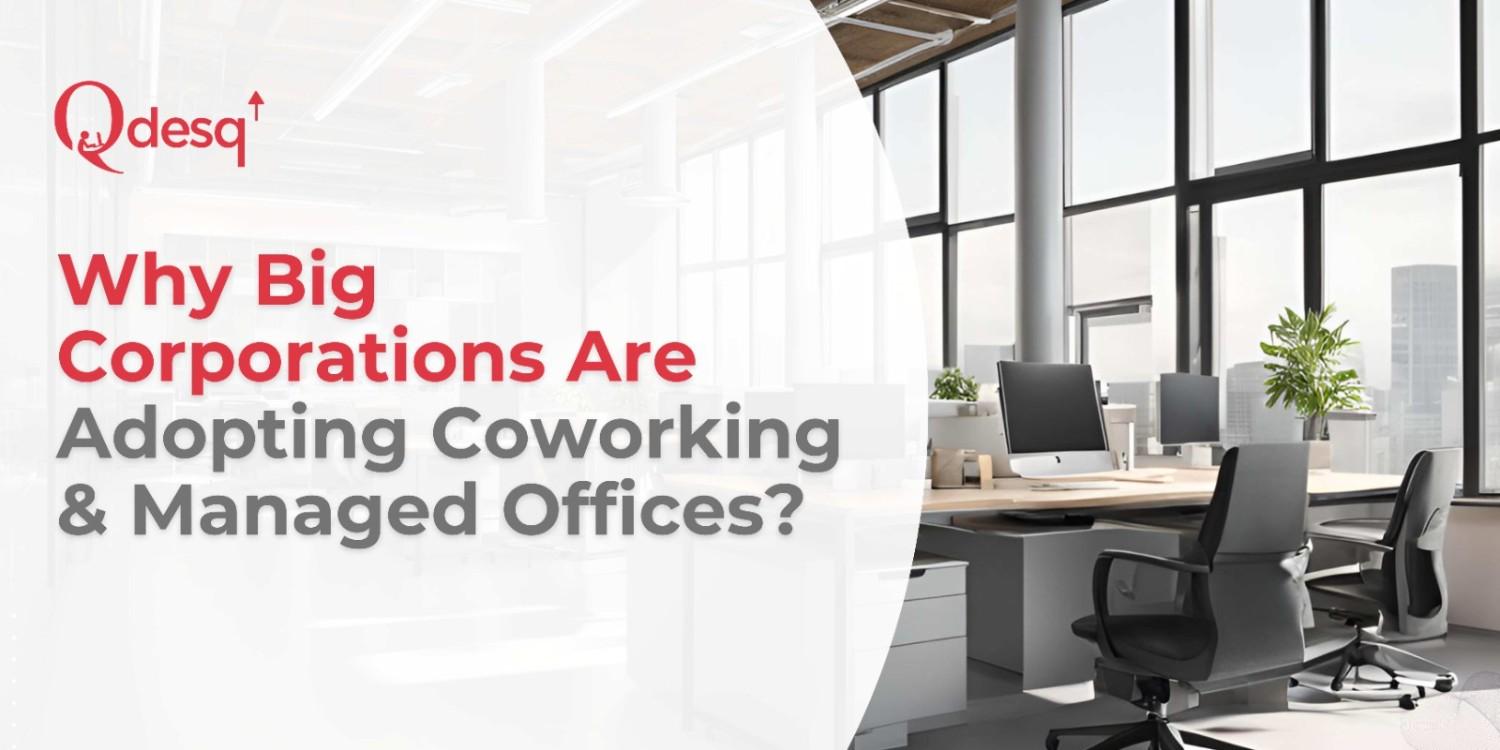The traditional office space is no longer the default option for large corporations. Once dominated by rigid office cubicles and long-term leases, businesses embrace a more flexible approach to their workplace environments. With coworking spaces and managed offices becoming increasingly popular, companies are discovering many benefits that align with modern work culture.
The shift is not just about a change in physical space but a complete overhaul of how businesses view workspaces and employee well-being.
In this blog, we’ll explore why major corporations are moving toward coworking spaces and managed office solutions and how these changes reflect the evolving corporate mindset.
Rethinking Office Space: The Shift to Flexibility
Previously, companies viewed office space as a static asset or an investment in real estate that required long-term commitments and significant upfront costs. The idea was simple: the more square footage a company could secure, the more successful it seemed. Fast forward to today, and this mindset is being challenged.
Corporations now understand that the workplace is no longer just about physical space; it’s about fostering creativity, collaboration, and employee satisfaction. One of the main drivers behind this shift is the growing recognition of the importance of flexibility.
As businesses grow and face new market changes, they must stay flexible. Long-term leases and fixed office setups can slow them down and make it harder to take quick action when new opportunities arise. In contrast, coworking and managed office spaces offer the flexibility to scale up or down without the constraints of fixed contracts and rigid office layouts.
What’s Driving the Shift to Coworking and Managed Offices?
Some of the key factors that are driving the shift of big corporations towards coworking and managed offices are:
Cost Efficiency:
Renting traditional office spaces comes with hidden costs—maintenance, utilities, security, etc. Coworking spaces and managed offices eliminate many of these overhead costs. With all-inclusive pricing, companies can better allocate resources and focus on growth rather than worrying about facility management.
Flexibility and Scalability:
Whether a company is experiencing rapid growth or facing market uncertainties, coworking and managed offices allow them to adjust their office space to match their requirements without being locked into long-term leases.
Access to Prime Locations:
Big companies often want offices in central business districts, but those locations are expensive. Coworking spaces provide access to prime locations in major cities, allowing corporations to maintain a prestigious address while avoiding the high costs of leasing large office spaces in these areas.
Collaboration and Innovation:
These coworking and managed office spaces often bring together people from different industries, providing an opportunity to share ideas and innovative thinking. For large corporations, this collaborative environment can lead to new business opportunities, partnerships, and a more dynamic workplace culture.
Enhanced Employee Satisfaction:
Today’s workforce values work-life balance and flexibility more than ever before. With coworking spaces, employees can access amenities that cater to their well-being, such as wellness rooms, flexible hours, and comfortable environments, contributing to a happier, more productive workforce and improving employee retention.
Examples of Big Corporations Embracing Flexible Workspaces
Several major corporations have already adopted coworking spaces and managed offices, and their stories provide valuable insights into the advantages of this shift.
- IBM: IBM embraced a partnership with coworking giant WeWork. The collaboration allowed IBM to provide its employees access to flexible, collaborative environments.
- Microsoft: Microsoft uses coworking spaces to create a flexible, collaborative environment where teams feel connected, aligned with the brand, and engaged with the broader community, helping them stay agile and responsive.
- Atlassian: Atlassian uses flexible office setups to support its global teams, combining remote work with occasional in-person meetings, focusing on autonomy, collaboration, and meaningful face-to-face time.
Future Outlook
The future of corporate workspaces is firmly leaning toward flexibility, innovation, and employee-first design. The global coworking market valued at $22.01 billion in 2024 is projected to soar to $82.12 billion by 2034 with a 14.1% annual growth rate. Large enterprises are expected to play a significant role in driving this demand.
At the same time, the managed office market is gaining remarkable momentum. Valued at approximately $34.76 billion in 2023, it’s expected to reach $129.71 billion by 2032—growing at a CAGR of about 15.77%, showing that corporations are not only seeking flexibility but also expecting office spaces that are fully customized, branded, and ready to operate.
Final Words
As we move further, the coworking and managed office spaces trend is only set to grow. Companies adapting to these changes will be better positioned to thrive in an increasingly dynamic business landscape. The future of work is all about creating environments that empower employees, encourage collaboration, and enable businesses to scale with ease.
Embracing this shift is no longer just a trend—it’s a strategic business move that can help organizations stay competitive in an ever-evolving world.











